Beschreibung
Einleitung
Korrosionsgutscheine können verwendet werden, um die Korrosionsrate in verschiedenen Branchen wie der Öl- und Gasindustrie und der Wasserindustrie zu testen. Die EMT-RCC Retacable Corrosion Coupons sind mit einem Abrufwerkzeug ausgestattet, mit dem der Gutschein für Pipelines unter Druck getrennt ist. Der entworfene Druck liegt unter 10 MPa. Während des Betriebs kann die Implantationstiefe des Korrosionsgutscheins eingestellt werden, um den Durchmesser und die Wandstärke der Rohrleitung aufzunehmen. Das Standardsystem ist in verschiedenen Längen erhältlich - 24, 30, 36, 42 und 48 Zoll (um die Kundenbedürfnisse zu erfüllen) - es für Rohre mit unterschiedlichen Durchmessern geeignet ist. Die EMT Retactable Corrosion Coupons umfassen einen Korrosions -Gutschein, ein Ballventil und ein einstellbares Sicherheitsklemme -Kit. Es wird empfohlen, den Sicherheitsverschluss zu verwenden, wenn der Pipeline -Druck unter 1500 psi sinkt und die Temperatur unter 500 ° F fällt.
Understanding the Test Results: Take the Water System as An Example
The corrosion rate of a coupon is determined by the amount of metal lost over a specified period. To determine metal loss, the coupons are meticulously weighed and reported before and after. Corrosive “pitting” is also quantified by measuring the area of the pitted surface.
Location, exposure length, pH, water temperature, coupon design or placement, flow velocity, and current water treatments are all factors that influence the corrosion rate.
Following the evaluation, the technician will compute the rate in mils per year. Each metal or alloy has a different allowable corrosion rate.
Stainless Steel
| Evaporative Water Systems | Closed Water Systems | |
| Acceptable | <0.1 MPY | <0.1 MPY |
| Unacceptable | >0.1 MPY | >0.1 MPY |
Copper and Copper Alloys
| Evaporative Water Systems | Closed Water Systems | |
| Pretty Good | <0.1 MPY | ≤0.1 MPY |
| Very Good | 0.1-0.25 MPY | 0.1-0.15 MPY |
| Gut | 0.25-0.35 MPY | 0.15-0.20 MPY |
| Fair | 0.35-0.5 MPY | 0.2-0.3 MPY |
| Arm | 0.5-1.0 MPY | 0.3-0.5 MPY |
| Unacceptable | >1.0 MPY | ≥0.5 MPY |
Low Carbon Steel
| Evaporative Water Systems | Closed Water Systems | |
| Pretty Good | ≤1.0 MPY | ≤0.2 MPY |
| Very Good | 1.0-3.0 MPY | 0.2-0.3 MPY |
| Gut | 3.0-5.0 MPY | 0.3-0.5 MPY |
| Fair | 5.0-8.0 MPY | 0.5-0.8 MPY |
| Arm | 8.0-10.0 MPY | 0.8-1.0 MPY |
| Unacceptable | >10 MPY | ≥1.0 MPY |
Aluminum
| Evaporative Water Systems | Closed Water Systems | |
| Acceptable | <0.2 MPY | <0.2 MPY |
| Marginal | 0.2-0.25 MPY | 0.2-0.25 MPY |
| Unacceptable | >0.25 MPY | >0.25 MPY |
Components of EMT Retractable Corrosion Coupons
| Safety Clamp Assembly | This part guarantees that the system is securely attached to the pipeline. It is intended to withstand the system’s high pressure and temperature conditions. |
| Lock Nut | The lock nut is critical in locking the system and preventing it from loosening due to pipeline vibration or pressure variations. |
| Sealing Nut | Die Versiegelungsmutter bildet in Verbindung mit der Verriegelungsmutter eine sichere und dichtes Dichtung, wodurch Rohrleitungsleckage verhindert wird. |
| Anschlussrohr | Dies ist das Systemstück, das den Korrosions -Gutschein mit der Pipeline verbindet. Es ist so gebaut, dass es den gleichen Druck und den gleichen Temperaturniveau wie die Pipeline aushält. |
| Volles Bohrungsballventil | Der Fluss des Pipeline -Mediums wird von diesem Ventil gesteuert. Es kann entweder vollständig anhalten oder einen vollständigen Durchfluss ermöglichen, was für die Wartung und den Betrieb der Systeme von entscheidender Bedeutung ist. |
| Schweißbasis | Die geschweißte Basis dient als Fundament des Gutscheinsystems und bietet eine robuste und robuste Plattform für die anderen Komponenten. |
| Gutschein -Montagestange | Diese Stange sichert den Korrosionsgutschein und ist einstellbar, um verschiedene Rohrleitungsdurchmesser und Wandstärke anzupassen. |
| Einstellmutter | Die Einstellmutter ermöglicht es, dass der Korrosionstupon genau in der Pipeline positioniert wird. Dies ist wichtig, um präzise Korrosionsdaten zu erfassen. |
| Obere Sicherheitsklemme | Diese Klemme befestigt den oberen Teil des Systems und arbeitet zusammen mit der unteren Sicherheitsklemme zusammen, um zu garantieren, dass das System sicher an der Pipeline befestigt ist. |
| Verriegelungsmutter | Die Verriegelungsmutter verleiht dem System eine zusätzliche Schutzschicht, indem sichergestellt wird, dass die Änderungen der Couponposition während des gesamten Betriebs festgelegt bleiben. |
| Niedrigere Sicherheitsklemme | Diese Klemme sichert den unteren Teil des Systems und arbeitet mit der höheren Sicherheitsklemme zusammen, um eine enge und sichere Verbindung zur Pipeline herzustellen. |
Neuinstallation von Einziehbare Korrosionsgutscheine von EMT-RCC
Wenn der Ersatz für den Korrosionstupon nach der Inspektion abgeschlossen oder neu installiert ist, fahren Sie mit der Neuinstallation des Gutscheingeräts fort. Fahren Sie mit der Neuinstallation des Gutscheingeräts fort, wenn der Corrosion Coupon -Ersatz abgeschlossen ist oder nach den Inspektionsarbeiten neu installiert ist.
(1) Überprüfen Sie, ob sich die Einstellstange in Position befindet.
Der Abstand zwischen den beiden Sicherheitsklemmen sollte gemessen und eingestellt werden (L2 = 515525 mm). Wenn es nicht zu diesem Zustand passt, sollte der Bereich angepasst werden. (HINWEIS: Halten Sie während des Einstellungsverfahrens das untere Sicherheitsklemme stationär und stellen Sie nur die obere Sicherheitsklemme ein.)
(2) Ersetzen Sie die Versiegelungsverbindung.
Löschen Sie das verbleibende Versiegelungsmaterial aus den Verzweigungsrohrgewinden und der Versiegelungsmutter und wickeln Sie dann das neue Versiegelungsmaterial um die Gewinde.
(3) Schließen Sie das Gutscheingerät an.
Richten Sie das Gutscheingerät mit den AST-Rohrgewinden aus, zeichnen Sie es von Hand, bis es sich nicht bewegt, und ziehen Sie die Versiegelungsmutter mit einem Schraubenschlüssel fest.
(4) Schalten Sie das Ventil ein.
Überprüfen Sie nach dem Öffnen des Ventils auf Lecks an der Verzweigungsrohrverbindung und alle Gewindeverbindungen. Schließen Sie das Ventil, wenn ein Leck vorliegt, dann mit der auslaufenden Siegel (ändern Sie das Versiegelungsmaterial oder ersetzen Sie Teile, pflegen Sie und installieren Sie sie wieder). Wenn noch ein Leck vorhanden ist, wiederholen Sie diesen Vorgang, bis keine Leckage vorhanden ist.
(5) Geben Sie die obere Sicherheitsklemme in ihre ursprüngliche Position zurück.
Stellen Sie die untere Einstellmutter der oberen Sicherheitsklemme auf die niedrigste Position ein, sobald sie die Einstellung der oberen Einstellmutter beeinflusst. Passen Sie den ursprünglichen Installationsaufzeichnungsabstand L den Abstand zwischen der oberen Sicherheitsklemme und der Oberfläche der geschweißten Basis an. Siehe Schritt 4 der ersten Installation. Beim Anziehen der Nüsse kann eine Person die beiden Nüsse abwechselnd festziehen, oder zwei Personen können die beiden Nüsse gleichzeitig festziehen und sich bemühen, die obere Sicherheitsklemme senkrecht zum Coupon -Stützstab zu halten, um eine übermäßige Neigung zu vermeiden.
(6) die Coupon -Stützstange einschalten.
Überprüfen Sie nach der Einstellung der oberen Sicherheitsklemme die Richtung des Coupon -Stützstabes und drehen Sie sie so, dass die Indikatoroberfläche in Richtung des Pipeline -Mediumstroms zeigt. Ziehen Sie die oberen und unteren Einstellmuttern der oberen Sicherheitsklemme fest und inspannen Sie die Lock -Nuss der unteren Sicherheitsklemme. Die Installation ist abgeschlossen.
Der Neuinstallationsprozess ist jetzt abgeschlossen.
Schlussfolgerung
Der mit EMT-RCC Retactable Corrosion Coupon entscheidende Instrument zur Beurteilung der Korrosionsraten in verschiedenen Branchen, einschließlich des Öl-, Gas- und Wassersektors. Das einziehbare Design, eine einstellbare Implantationstiefe und verschiedene Längen machen es zu einer vielseitigen Lösung für Rohre mit unterschiedlichen Durchmessern und Wandstärken. Dieses System, das einen Korrosions -Gutschein, ein Ballventil und ein einstellbares Sicherheitsklemme -Kit umfasst, bietet eine praktische, sichere und effiziente Methode für die Korrosionsanalyse unter verschiedenen Pipeline -Bedingungen.
Das Verständnis der Testergebnisse wie dem Grad des Metallverlusts und der Lochfraß ist entscheidend für die Aufrechterhaltung der Integrität dieser Systeme. Faktoren wie Ort, Expositionslänge, pH, Wassertemperatur, Gutscheindesign oder Platzierung, Durchflussgeschwindigkeit und aktuelle Wasserbehandlungen beeinflussen die Korrosionsrate erheblich. Mit dem EMT-RCC-Corrosion-Gutschein können die Industrien Korrosion effektiv überwachen und verwalten, um die langfristige Betriebswirksamkeit und Nachhaltigkeit ihrer Pipeline-Systeme zu gewährleisten.

.jpg.webp)
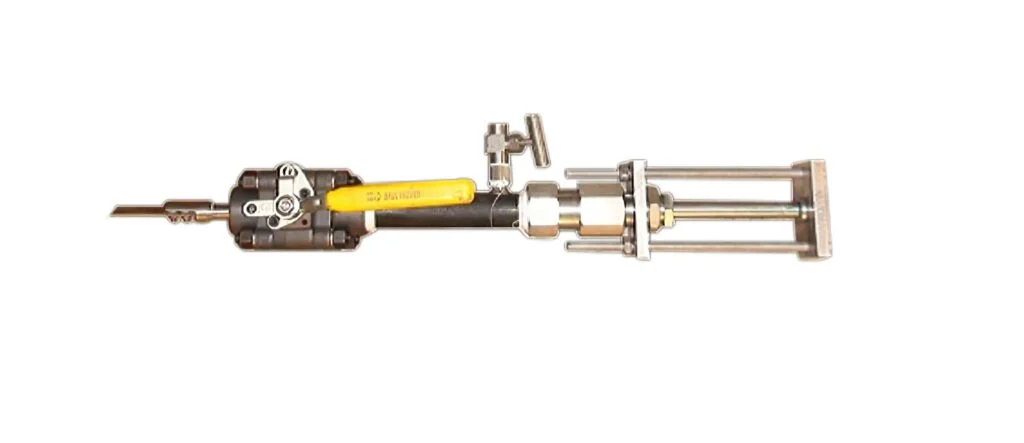

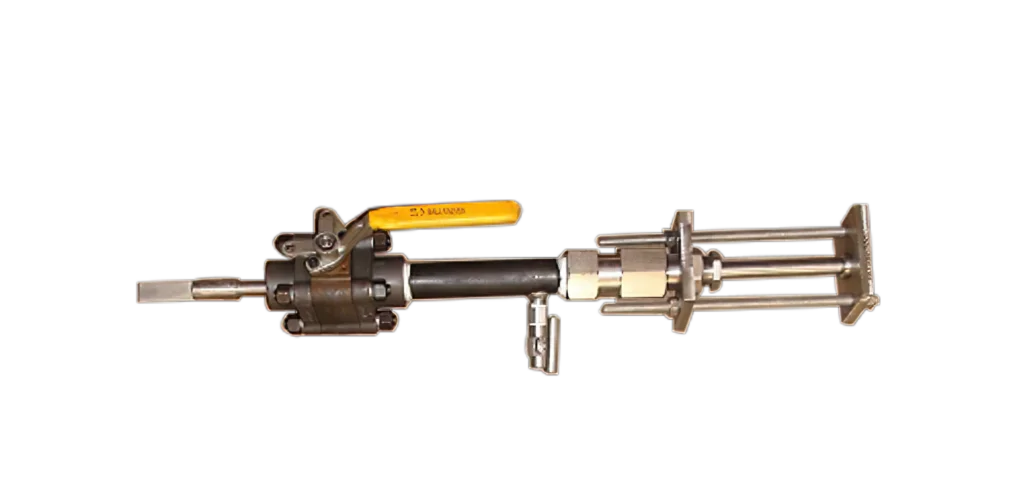
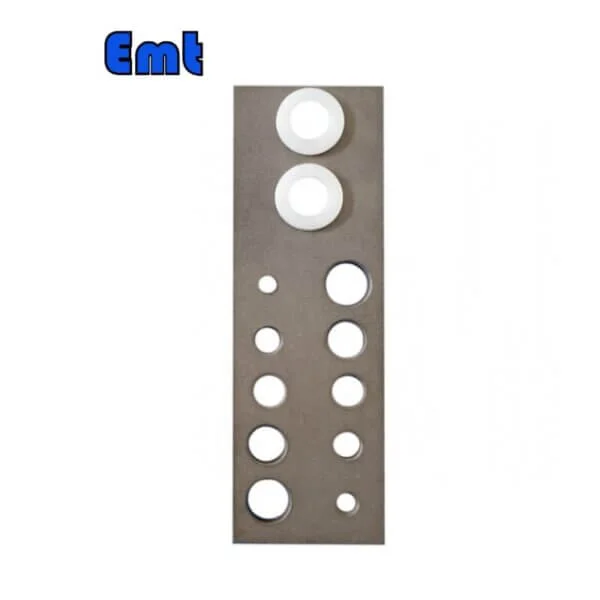
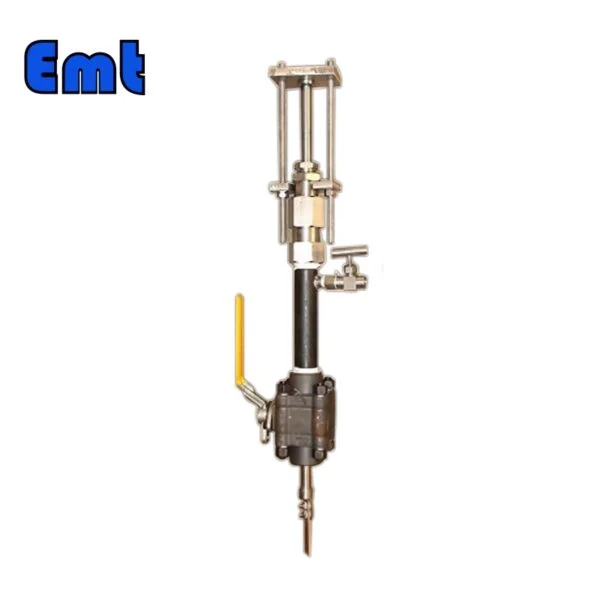
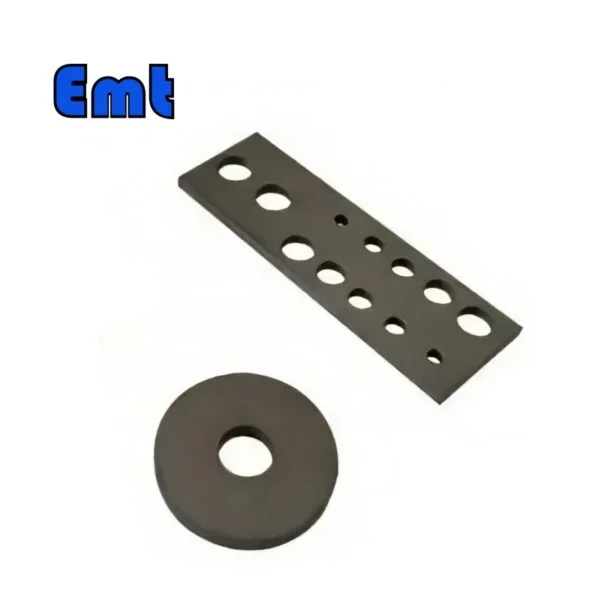
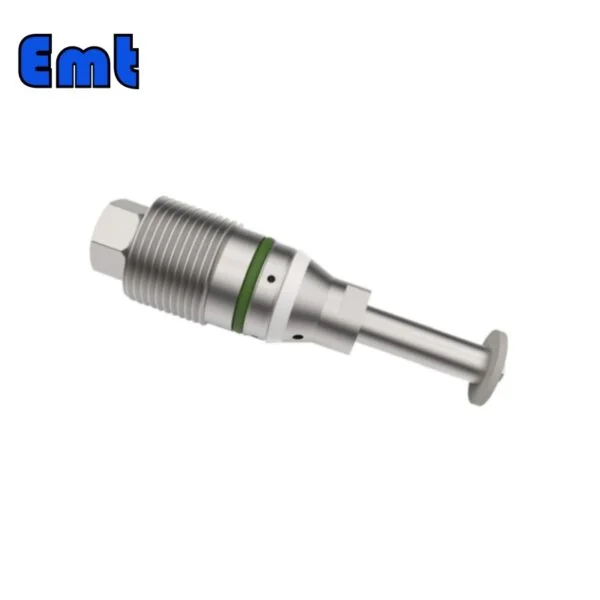
Rezensionen
Es gibt noch keine Bewertungen.